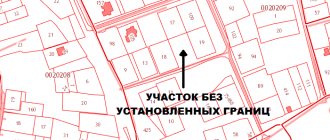How courts used to consider disputes about the maintenance of adjacent territory
If the land plot on which the apartment building is located has been formed and registered in the cadastral register, it belongs to the owners of the premises in the house and belongs to their common property. The owners of premises in the apartment building are required to maintain such a site. If the land plot under the house is not formed and is not registered, it is owned by the municipality. In this case, the area around the house must be maintained by the municipality. The courts made such conclusions from Article 210 of the Civil Code. Municipal improvement rules that contradicted this norm were declared invalid by the judges.
Document: Similar decisions are in the rulings of the Supreme Court dated 04/17/2018 No. 50-KG18-6, dated 12/20/2017 No. 56-APG17-21, dated 10/03/2018 No. 47-APG18-4
EXAMPLE 1.
A citizen slipped on the ice near a non-residential extension to an apartment building. As a result, his health suffered moderate damage. The citizen filed a lawsuit against the management organization and the individual entrepreneur - the owner of the non-residential premises. The plaintiff demanded to recover from the defendants lost earnings and compensation for moral damage.
The courts of first and appellate instances satisfied the plaintiff's demands. They were guided by paragraph 98 of the decision of the Omsk City Council dated July 25, 2007 No. 45 “On the rules of improvement, ensuring cleanliness and order in the territory of the city of Omsk.” This norm states that persons who conduct economic or other activities on this territory or in the building are required to clean the area adjacent to the boundaries of the building. The entrepreneur did not agree with the conclusions of the courts and appealed to the Supreme Court.
The Supreme Court overturned the decisions of the lower courts. He pointed out that a person who is not the owner of the property bears the burden of maintaining it only in cases provided for by federal laws or an agreement. Landscaping rules do not apply to federal legislation. Federal Law No. 131-FZ dated October 6, 2003 allows local self-government bodies to establish a procedure for the participation of owners of buildings and premises in the improvement of adjacent territories. But it is impossible to impose on the owners the obligation to maintain the territory against their will (Decision of the Supreme Court dated April 17, 2018 No. 50-KG18-7).
Municipal improvement rules, which oblige the owners of residential and non-residential premises to clean up the adjacent territory, were declared invalid by the courts both in the claims of the owners themselves and in the prosecutor's claims in defense of the rights of an indefinite number of persons.
EXAMPLE 2.
The prosecutor applied to the court to declare the provisions of the city improvement rules contrary to federal law, invalid and not subject to application. They obliged legal entities and individuals, as well as individual entrepreneurs, to keep the territory adjacent to buildings, structures and other real estate objects clean and tidy. This obligation was established for all owners of real estate: owners, tenants, persons who accepted the objects for operational management or economic management. The prosecutor pointed out that the municipal legal act should not impose on individuals and legal entities the obligation to maintain the territory adjacent to their property if it is not in their ownership, possession or use. This is contrary to the requirements of the Constitution and federal laws.
The judges agreed with the prosecutor. It follows from the landscaping rules that the adjacent territory is a public area. Public lands are lands that are not provided for ownership or use by individuals and legal entities. Such lands are owned by the municipality (Articles 16–19 of the Land Code). Article 210 of the Civil Code gives the owner the opportunity to transfer the burden of maintaining the property to other persons in whole or in part. But this is permissible only in cases specified in the law or agreement.
The rules of improvement do not establish the procedure for determining the boundaries of territories for the maintenance, improvement and cleaning of the territory. In addition, they do not establish the maximum size of the area of the site, the responsibility for the maintenance of which rests with citizens and legal entities, as well as possible cases of bearing such responsibility (decision of the Petrovsky District Court of the Stavropol Territory dated 09.09.2015 in case No. 2-772/2015).
Keep an eye on quality
It is important to know that the tariff for house cleaning directly depends on the area of the apartment in which the owner lives. The larger his home, the more he will pay for landscaping the yard.
For unsatisfactory performance of work, residents have the right to demand responsibility from the performing organization.
If an act is drawn up confirming the low quality of service or its absence, residents may be refunded the money paid for house cleaning.
Quantity
What changed
Note: Adjacent territory refers to the public territory adjacent to a building, structure, structure or land plot, if such a land plot is formed
On June 28, 2021, a new edition of the Town Planning Code came into force (Federal Law dated December 29, 2017 No. 463-FZ). The legislator introduced the concept of “adjacent territory”. He also established that the rules for improvement of the territory of a municipality can regulate the direct and financial participation of owners and other owners of buildings, structures, structures, and land plots in the maintenance of adjacent territories. The rules may determine the boundaries of such territories in accordance with the procedure established by regional law. An exception is provided for owners and owners of premises in apartment buildings, the land plots under which are not formed or are formed along the borders of the apartment complex.
In the summer of 2021, the Supreme Court heard another case challenging the provisions of the city's landscaping regulations. The decision he made is good news for municipalities.
EXAMPLE 3.
Municipal improvement rules required owners and owners of buildings and structures to maintain the areas adjacent to their facilities. For stalls, such a territory was determined to be 10 m, for advertising structures - 5 m, and for apartment buildings - 15 m along the perimeter from the boundaries of the land plot on which the house is located, with elements of landscaping and landscaping. One of the organizations managing apartment buildings considered that the municipality illegally imposed on it, as the person responsible for the maintenance of apartment buildings, the responsibility to maintain the territory that is not part of the common property of the owners. The organization tried to challenge the provisions of the improvement rules in court.
The regional and then the Supreme Court rejected the administrative claim. The court indicated that landscaping is an activity including the maintenance of objects located on them, as well as the territories adjacent to them. The Town Planning Code as amended by Law No. 463-FZ provides for the obligation of persons responsible for the operation of a building, structure or structure to take part in the maintenance of adjacent territories in cases and in the manner determined by municipal improvement rules. With these rules, municipalities have the right to regulate issues of participation in the maintenance of adjacent territories by owners and owners of buildings, structures, structures, and land plots (Clause 13, Part 2, Article 45.1 of Law No. 131-FZ). The grounds for invalidating the norms of municipal improvement rules can only be procedural. In the case considered, the procedure for adopting these rules was not violated (Decision of the Supreme Court dated July 5, 2019 No. 2-APA19-5).
Important: The participation of property owners in the maintenance of adjacent territories can also be financial
Cleaning schedule for local area: Sample
Read the current site cleaning plan approved by the Russian standard. Here are all the details that every janitor and inspector should know.
Also find out what the responsibilities of a janitor who starts work on the site are.
Save these pictures to your computer or phone:
To enlarge the picture, click on it
To enlarge the picture, click on it
Do you want to know how to draw up a contract for cleaning the territory? Easily! You can download a free sample contract here>> The latest schedule for cleaning entrances in an apartment building:
Conclusions and recommendations for municipalities
Rules for improvement of the territory of a municipality may regulate issues of participation, including financial, of owners and (or) other legal owners of buildings, structures, structures, land plots in the maintenance of adjacent territories. Local government bodies have the right to provide in the rules of improvement the obligation of participation, including financial, of owners and other legal owners of buildings, structures, structures, land plots in the maintenance of adjacent territories. An exception is made only for owners of premises in apartment buildings, the land plots under which are not formed or are formed along the boundaries of the houses. Such persons do not participate in the maintenance of the adjacent territory.
The obligation of owners and other owners of real estate to maintain cleanliness and order in the adjacent territory should be established not only in municipal rules of improvement, but also in lease agreements and other civil contracts that local self-government bodies conclude with these persons.
The local self-government body has the right to determine the boundaries of adjacent territories in the rules for landscaping the territory of a municipal entity only in accordance with the procedure established by the law of the constituent entity of the Russian Federation (clause 14, part 2, article 451 of Law No. 131-FZ).
According to the agreement
An agreement is concluded with the organization that will carry out cleaning activities in the yard, which includes:
- information about the serviced area;
- information about the parties to the agreement, their rights and obligations;
- cleaning schedule;
- list of services;
- cost of different types of work;
- measures taken in case of violation of the terms of the contract.
The cleaning schedule for the local area, as a rule, includes sweeping at least once every 2-3 days, and daily cleaning of the container area.
In winter, it is necessary to remove freshly fallen snow every day, and in autumn, at least once every 2 days, to remove fallen leaves.
The lawns are cleared of random debris weekly, and such areas are mowed monthly in the summer. Once a year, landscaping workers whitewash curbs and trees growing in the area.
The list of these services can be changed at the request of residents: additional items are also included in the concluded agreement.
Watch the video: Relax! Comedy Club – Passport Office
How to draw up a territory inspection report
If you need to draw up an inspection report for the territory, use the tips below. Also look at the example - taking it into account, you will be able to create your own document without much difficulty.
Before giving a detailed idea of this particular act, we will talk about some general information that applies to all such papers.
- Firstly, if an organization has a document template recorded in its accounting policies, the act must be created according to its type. But if there is no such template, this is not a problem - you can draw up an act in any form, from the point of view of the law this will not be a violation.
- Secondly, the act can be written manually or typed on a computer, but if the second option is used, the document must be printed after formation - this is necessary so that the responsible persons can verify it with their autographs.
Without the personal signatures of the responsible persons, the form will not acquire legal status.Also, if it is customary for an enterprise to use seals to certify papers, the act must be stamped.
- Thirdly, the document should be made in at least two identical copies (if it is written by hand, then using a copy sheet). One copy remains with the company, the second must be transferred to the place of request (for example, if the inspection of the territory was carried out at the initiative of any supervisory structure or at the request of the tenant/buyer of the building with the adjacent territory).
A note about the act must be included in a special accounting journal, which is usually always kept by the secretary of the enterprise or other responsible employee.
Creation of a commission
In order to conduct an inspection of the territory, a special commission is created. It includes several employees of the enterprise belonging to different structural divisions. This could be a labor safety engineer, supply manager, accountant and secretary. The number of commission members is not limited, but in any case, there must be at least two people.
The commission should have a chairman and ordinary members. The Chairman will have the greatest responsibility for inspecting the area and maintaining the report.
Inspection procedure
The initial impetus for inspecting the territory is a separate order from the director of the organization. It states:
- during what period the inspection should be carried out;
- conditions for the inspection;
- who should conduct the inspection;
- the person responsible for the execution of the order (this may also be the chairman of the commission participating in the inspection of the territory).
After the order is issued, the examination takes place at the specified time. Based on its results, an act is drawn up, which includes all the actions of the commission members, as well as, necessarily, the results.








